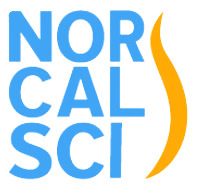LOCAL AND STATE FUNDING REPOSITORY
After Hospital Neurological Rehabilitation
UTAH
Source: Dale Hull, Neuroworx
UTAH SCI/BI Rehabilitation Fund
The SCI/BI Rehabilitation Fund is a legislative initiative established in 2012 to be a mechanism to provide funding for after-hospital rehabilitation for individuals experiencing paralysis from a spinal cord injury or brain injury. Individuals who are eligible for the assistance must be a resident of Utah, have exhausted all of their financial resources (i.e. the fund is a payor of last resort) and have the potential to make continued progress as assessed by a licensed therapist. The therapy received must be through an approved clinic that is contracted with the State of Utah specifically for these funds.
https://neuroworx.org
https://le.utah.gov/~2012/bills/static/HB0400.html
INDIANA
Source: Chris Leeuw, Neurohope
INDIANASENATE ENROLLED ACT No. 166 2015
Sec. 0.5. As used in this chapter,
"activitybasedtherapy services”referstospecializedinterventions
that activate the neuromuscular system below the level of the
lesion, involving intense, repetitive physical activity performed
with the goal of retraining the nervous system to recover specific
motor tasks.(A) post acute extended treatment and services for an
individual with a spinal cord injury; or
(B) facilities that offer long term activity based therapy
services at affordable rates to an individual with a spinal
cord injury that requires extended post acute care.
https://www.neurohopewellness.org
TEXAS
Source: Richhpal Chaudhary
Comprehensive Rehabilitation Services (CRS)
What is CRS?
The Comprehensive Rehabilitation Services program assists eligible people who have a traumatic brain injury (TBI), traumatic spinal cord injury (TSCI), or both, function independently in their home and community. Services can be related to communication, mobility and self-care.
If you have experienced a TBI or TSCI, Texas Health and Human Services (HHS) can help you live more independently. The CRS program staff work with the injured person and their family members to identify rehabilitation goals and services. Potential services will be outlined below.
HHS defines a traumatic injury as one that is the result of an external physical force. TBIs and TSCIs can be the result of a car accident, fall, assault, violence or sports injury.
https://www.hhs.texas.gov/services/disability/comprehensive-rehabilitation-services-crs
NEW HAMPSHIRE
Source: Daniele Crutcher, Project Walk Boston
NH Medicaid Waivers
New Hampshire offers four Medicaid waiver programs that can be added to NH Medicaid plans. Individuals must qualify for these waivers:
IHS (In-Home Support Services)
DD (Developmental Disabilities)
ABD (Acquired Brain Disorder)
Each of these waivers includes a Community Integration category with an $8,000 annual cap. Project Walk submits a Plan of Care to the case manager, who then submits it to the state for funding allocation.
CFI (Choices for Independence)
This waiver is far more flexible and a better fit for individuals who want to attend our facility.
Project Walk falls under "Individual Goods and Services Hourly."
Clients on this waiver have more control over their funds, allowing them to attend without the cap that applies to the other waivers.
Currently, we have about 20 clients attending an average of 2 days per week for 2 hours per session.
I’ll attach a link with more details about these waivers for reference.
https://www.dhhs.nh.gov/programs-services/medicaid/medicaid-waivers-demonstrations
Our Collaboration with NH Medicaid
We have actively engaged with the Governor, the Director of Medicaid, and his team to showcase what we do at Project Walk. Through negotiations, we secured a discounted rate, allowing the Medicaid population to receive more training hours with us.
However, this process has required significant effort and time on our end:
We redesigned our documentation to comply with the department’s requirements.
We submit SOAP notes for every hour trained.
We conduct quarterly testing and progress reports.
I hold weekly meetings with the NH Medicaid Team to ensure compliance and advocacy.
While the process has been demanding, I can confidently say it is absolutely worth it!
Non Waivered Participants
We also have a state contract in place to support individuals who are not eligible for a waiver. Project Walk has secured $200,000 in funding for the year to assist other New Hampshire residents in accessing services.
This process differs from the waiver program:
Project Walk must submit the individual's name, date of birth, and diagnosis to the state for verification to confirm they are not eligible for a waiver.
If confirmed, PW must then submit a Plan of Care, a doctor's referral, and supporting notes from the referring provider.
The state has a 5-day turnaround to approve or deny the request.
Once approved, PW submits an invoice and SOAP notes to the designated representative for processing and payment.
This contract allows us to extend our services to more individuals who need them while ensuring proper documentation and compliance with state requirements.
FLORIDA
Source: Kristen Cezat, ANPT SCI Special Interest Group Nominating Committee
The Brain and Spinal Cord Injury Program (BSCIP)
Administered by the Florida Department of Health. BSCIP is primarily funded by the Brain and Spinal Cord Injury Program Trust Fund, as outlined in section 381.79, Florida Statutes. These funds are appropriated for the purpose of providing the cost of care for brain or spinal cord injuries as a payor of last resort to residents of this state. BSCIP also receives state general revenue funding as well.
https://www.floridahealth.gov/provider-and-partner-resources/brain-and-spinal-cord-injury-program
